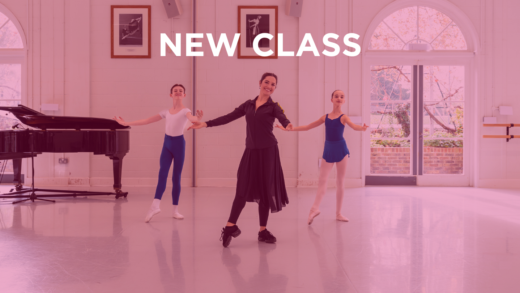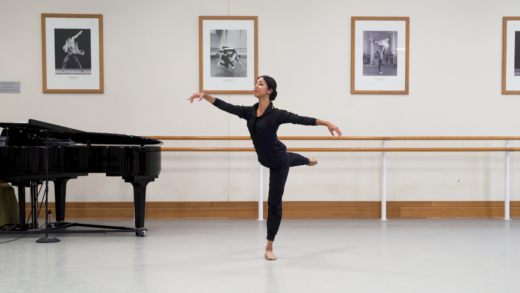Focus class: developing artistry with former Artistic Director, Christopher Powney for 16+
A focus class designed for dancers aged 16+ to explore and develop their artistry in classical ballet. This class also includes an illuminating talk with Mr Christopher Powney.
£12.00
- 1 Class
- Suitable for 16+
Artistic interpretation and expression are an important part of dance training. In this focus class, former Artistic Director & CEO, Christopher Powney will help you explore your artistry in classical ballet. This class includes a talk with Mr Powney, answering questions from prospective students and giving insights into life at the School.
What you will learn
-
How to develop performance and presentation skills
-
How to embed artistry into a ballet class
-
The importance of artistry as part of ballet training
Your Tutors

Christopher Powney
Former Artistic Director
Christopher Powney has danced with Northern Ballet, English National Ballet and Rambert Dance Company. He performed and created many roles and worked with numerous prominent choreographers and artists, among them Christopher Gable, Lynn Seymour, Frederick Franklin, Ivan Nagy, Rudolf Nureyev, Glen Tetley, Christopher Bruce and Jiří Kylián.
During his dancing career, Christopher began to turn his focus toward teaching and qualified with The Royal Ballet School’s Professional Dancers Teachers’ Course. He was Assistant Artistic Director of Central School of Ballet’s graduate touring company and in 2000 he helped coordinate and performed at a Gala to celebrate the life and work of Christopher Gable CBE.
In 2000 he joined the faculty of The Royal Ballet School at the invitation of Gailene Stock, teaching 2nd Year boys at the Upper School. He then moved abroad in 2006 to take up the position of Graduate Teacher with the dance department of the Royal Conservatoire, The Hague. In September 2010 Christopher was appointed Artistic Director of the Dutch National Ballet Academy. Throughout this period, he helped to establish The Dutch National Ballet Junior Company and founded the Amsterdam International Summer School.
Christopher teaches internationally and participates as a jury member at many international competitions including the Prix de Lausanne and Youth America Grand Prix. In 2022 he became a member of the Windsor Leadership Alumni network.
Christopher returned to The Royal Ballet School and took up the post of Artistic Director in September 2014. In 2022 he was made Artistic Director & CEO, leaving the school in 2024.
Frequently Asked Questions
Who can participate?
These classes are recommended for students aged 16+ and reflect the training given to students aged 16-19 studying at The Royal Ballet School. The classes are not suitable for beginner students, students with limited experience or students under 15 years old.
For these classes, we recommend that:
- Students are regularly training in a recognised classical ballet syllabus at a vocational level of Advanced 2 or above, or studying at an equivalent level in full-time vocational training
- Students have an excellent and broad knowledge of ballet vocabulary and can follow the class using only verbal instruction if necessary
- Students will have strong and secure basic technique with an understanding of correct placement
- Barrework should be strong with clean execution and secure demi-pointe work
- Adage will have strong, secure placement and extensions will be at 90 degrees or above
- Pirouettes are secure and students will have the ability to execute multiple turns
- Allegro, including batterie, should be executed with good understanding of secure take-off and landings
- Students undertaking pointe work will be confident in advanced exercises.
What do I need to participate?
These classes are designed so that they can be executed in a smaller space than a ballet studio. We ask that students/parents ensure that:
- The student meets the technical standards required for the class
- Any apparatus used for a barre is stable and safe
- The floor is not slippery, uneven or hazardous
- The area used for dancing is cleared of any items which could hinder the student’s ability to fully extend their arms and legs. There should be enough space for reasonable movement. If a student cannot fully execute an exercise, they should either adapt appropriately or not participate
- The student is able to clearly hear the teacher’s verbal instruction, see the teacher’s practical delivery and hear the music
- The student is appropriately dressed to safely execute a dance class. Soft ballet shoes should be worn for ballet, not pointe shoes. Bare feet, socks or suitable shoes should be worn for contemporary and Pilates
- The student’s hair is suitably tied back
- The student is fit and well in order to take part.




